第40章
And as the evidence, derived from witnesses and human testimony, is founded on past experience, so it varies with the experience, and is regarded either as a or a , according as the conjunction between any particular kind of report and any kind of object has been found to be constant or variable. There are a number of circumstances to be taken into consideration in all judgements of this kind; and the ultimate standard, by which we determine all disputes, that may arise concerning them, is always derived from experience and observation. Where this experience is not entirely uniform on any side, it is attended with an unavoidable contrariety in our judgements, and with the same opposition and mutual destruction of argument as in every other kind of evidence. We frequently hesitate concerning the reports of others. We balance the opposite circumstances, which cause any doubt or uncertainty; and when we discover a superiority on any side, we incline to it; but still with a diminution of assurance, in proportion to the force of its antagonist.
This contrariety of evidence, in the present case, may be derived from several different causes; from the opposition of contrary testimony; from the character or number of the witnesses; from the manner of their delivering their testimony; or from the union of all these circumstances. We entertain a suspicion concerning any matter of fact, when the witnesses contradict each other;when they are but few, or of a doubtful character; when they have an interest in what they affirm; when they deliver their testimony with hesitation, or on the contrary, with too violent asseverations. There are many other particulars of the same kind, which may diminish or destroy the force of any argument, derived from human testimony.
Suppose, for instance, that the fact, which the testimony endeavours to establish, partakes of the extraordinary and the marvellous; in that case, the evidence, resulting from the testimony, admits of a diminution, greater or less, in proportion as the fact is more or less unusual. The reason why we place any credit in witnesses and historians, is not derived from any , which we perceive
, between testimony and reality, but because we are accustomed to find a conformity between them. But when the fact attested is such a one as has seldom fallen under our observation, here is a contest of two opposite experiences; of which the one destroys the other, as far as its force goes, and the superior can only operate on the mind by the force, which remains. The very same principle of experience, which gives us a certain degree of assurance in the testimony of witnesses, gives us also, in this case, another degree of assurance against the fact, which they endeavour to establish; from which contradiction there necessarily arises a counterpoize, and mutual destruction of belief and authority.
C/ATO; was a proverbial saying in R/OME, even during the lifetime of that philosophical patriot.[25] The incredibility of a fact, it was allowed, might invalidate so great an authority.
The I/NDIAN prince, who refused to believe the first relations concerning the effects of frost, reasoned justly;and it naturally required very strong testimony to engage his assent to facts, that arose from a state of nature, with which he was unacquainted, and which bore so little analogy to those events, of which he had had constant and uniform experience. Though they were not contrary to his experience, they were not conformable to it.[26]
But in order to encrease the probability against the testimony of witnesses, let us suppose, that the fact, which they affirm, instead of being only marvellous, is really miraculous; and suppose also, that the testimony considered apart and in itself, amounts to an entire proof; in that case, there is proof against proof, of which the strongest must prevail, but still with a diminution of its force, in proportion to that of its antagonist.
A miracle is a violation of the laws of nature; and as a firm and unalterable experience has established these laws, the proof against a miracle, from the very nature of the fact, is as entire as any argument from experience can possibly be imagined. Why is it more than probable, that all men must die; that lead cannot, of itself, remain suspended in the air; that fire consumes wood, and is extinguished by water; unless it be, that these events are found agreeable to the laws of nature, and there is required a violation of these laws, or in other words, a miracle to prevent them?
Nothing is esteemed a miracle, if it ever happen in the common course of nature. It is no miracle that a man, seemingly in good health, should die on a sudden: Because such a kind of death, though more unusual than any other, has yet been frequently observed to happen. But it is a miracle, that a dead man should come to life; because that has never been observed in any age or country. There must, therefore, be a uniform experience against every miraculous event, otherwise the event would not merit that appellation.
And as a uniform experience amounts to a proof, there is here a direct and full , from the nature of the fact, against the existence of any miracle; nor can such a proof be destroyed, or the miracle rendered credible, but by an opposite proof, which is superior.[27]